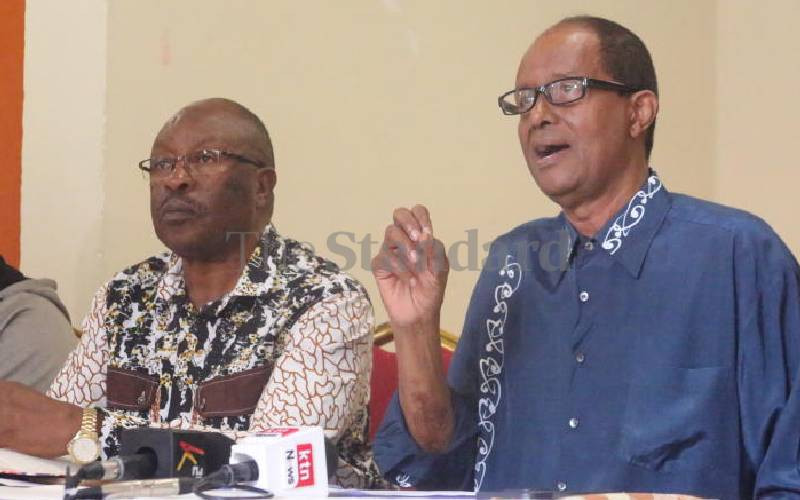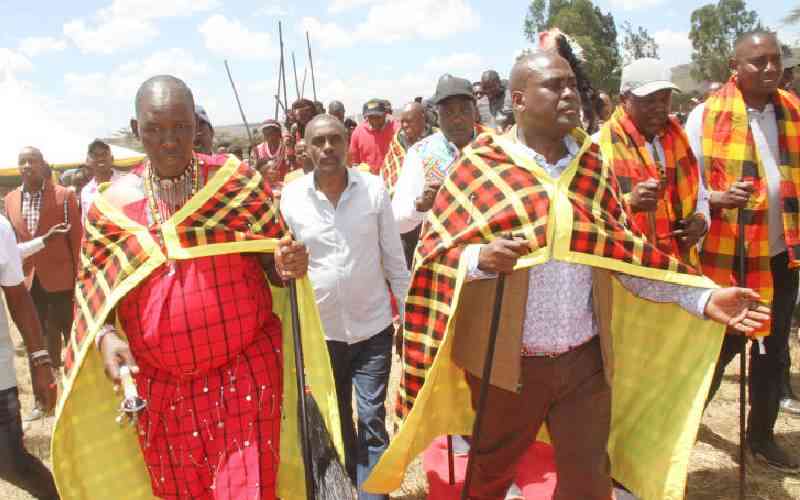By Kamau Mutunga
Kenya: Witchcraft, somehow, goes hand in dark hand with endemic poverty and low levels of education in regions where it is rampant in Kenya.
The practice of witchcraft is illegal and can have the one using charms to harm others cooling his or her sorcery heels in jail for 10 years. Even falsely accusing another of witchery attracts a Sh500,000 fine if found guilty or cooling government porridge in the slammer for five years.
According to Witchcraft and Colonial Rule in Kenya 1900-1955, historian Katherine Luongo informs us in her 2011 book that weeding out witches was a tribal affair in colonial Kenya. That was until a high profile witch-killing case of a Kamba woman happened in 1931. Mwaiki was killed by a group of men from her community. Mwaiki’s murder saw tens of Kamba men arraigned in court and charged in the “Wakamba Witch-killing Trials” of 1931-1932.
Mwaiki had been suspected of bewitching a fellow woman in the village and Kamba elders ordered her death.
The case officialy known as ‘Rex vs Kumwaka s/o Mulumbi and 69 others was heard at the Supreme Court in a trial that sent shock waves in the colony. The accused defended themselves arguing that “as leaders of the tribe they had the legal right to identify and remove witches for the good of the community by killing them in the traditional way,” that is king’ole, an institution of justice directed at social malefactors like witches and thieves, notes Luongo.
The Nairobi Railway Social Institute was the theatre where curious public went to follow the case in which 60 of the 69 Kamba men from the original 70 were found guilty, and sentenced to death!
The trial attracted foreign media due to the sheer number accused of murder triggered by uoi (witchcraft) in which their community was steeped.
The case provided a Catch-22 situation: Under colonial perception, witchcraft was pegged under violence while among the Kamba, invoking uoi to harm others was also wrapped under “discursive violence” creating similar, but competing perspective in this unprecedented case.
Witchcraft act
“Under the 1930 Penal Code, the justices had no recourse than to sentence the 60 men to death,” writes Luongo in Witchcraft and Colonial Rule in Kenya, adding that while the accused appealed, the East African Court of Appeal overturned it and recommended clemency to the Governor-in-Council.
Governor Byrne commuted the death sentences to various prison terms with hard labour.
The “Wakamba Witch-killing Trials” provided a powder keg that ignited debate on what constituted justice, law and order in African society.
Indeed, the trials exposed the “intersections of culture and crime, violence and law, the state and the supernatural,” writes Luongo.
The furor the trial kicked in its wake had a lasting impact as the 1925 Witchcraft Ordinance was fleshed to enact the 1962 Witchcraft Act.
Stay informed. Subscribe to our newsletter
 The Standard Group Plc is a
multi-media organization with investments in media platforms spanning newspaper
print operations, television, radio broadcasting, digital and online services. The
Standard Group is recognized as a leading multi-media house in Kenya with a key
influence in matters of national and international interest.
The Standard Group Plc is a
multi-media organization with investments in media platforms spanning newspaper
print operations, television, radio broadcasting, digital and online services. The
Standard Group is recognized as a leading multi-media house in Kenya with a key
influence in matters of national and international interest.
 The Standard Group Plc is a
multi-media organization with investments in media platforms spanning newspaper
print operations, television, radio broadcasting, digital and online services. The
Standard Group is recognized as a leading multi-media house in Kenya with a key
influence in matters of national and international interest.
The Standard Group Plc is a
multi-media organization with investments in media platforms spanning newspaper
print operations, television, radio broadcasting, digital and online services. The
Standard Group is recognized as a leading multi-media house in Kenya with a key
influence in matters of national and international interest.









